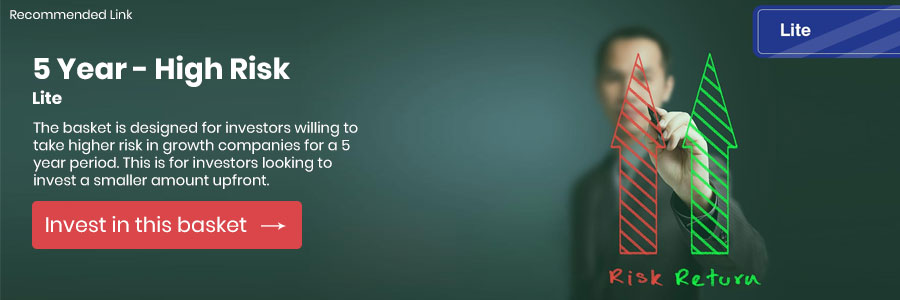When investing in the stock market, one must have heard the term ‘Timing’ quite a few times and how can one pick the right Timing to invest in a particular stock. It basically refers to the decision making of buying or selling financial assets by predicting the future market movement either based on technical or fundamental analysis. This strategy could be used for the broader market or even for an individual stock. The market participants would try to beat the market by accurately predicting market movements and accordingly buying or selling. Timing the market is the opposite of a ‘Buy and Hold’ strategy in which the investor may buy stocks and hold them for the long term and sell them later at a very high price. The definition of the long term might range from 3 years, 5 years or even 20 years. Investors are playing on the power of compounding which enhances returns over a long period of time. Do read our blog about the ‘power of compounding’ and ‘Long term investment and its benefits’ to know more about how it affects investors’ returns.

Does ‘Timing the Market’ work consistently over the long term? and is it relevant for wealth creation?
The answer to the 1st question is debatable with some professionals believing that it’s impossible, while some believing strongly in it. But there is no conclusive evidence to suggest that it might work for the long term. Many investors wait for the bottom to hit and then invest, but it’s really difficult to predict whether a stock has hit bottom and this is generally the case with ‘Market Timing’ because it involves a lot of short term future prediction which is why critics say that it’s practically impossible to time the market on a regular basis.
The answer to the 2nd question would need us to dive into another topic which is ‘Quality’. Quality in stock market refers to companies that have strong corporate governance, an honest management which has displayed intelligent decision making in the past, good historical performance and future growth potential, having strong moats around its business like a strong brand or any other competitive advantage and much more. Typically, such quality businesses trade at a premium to its peers because investors are willing to pay more for better quality and vice versa.
The market participants are betting that the company, which has proven its track record in the past, has strong economic moats around its business, is lead by sensible and stable management, will continue to deliver good performance in the future. Such quality businesses often generate regular free cash flows for its investors. This is where the answer to the 2nd question lies. Because these businesses have strong fundamental factors going for it, timing really becomes irrelevant when one is investing for the long term. Because a Quality business is normally the biggest in its industry with big fat cash lying on its books, one gets to see big getting bigger, often defying a slowdown in an economy. Quality is the reason why stocks like HUL, HDFC Bank, Nestle, Bajaj Finance trade at premium valuations and still generate solid returns for its shareholders. The 10 year and 3-year stock price CAGR of Bajaj Finance is 66% indicating that investors who put their money 10 years back and investors who put their money 3 years back have earned roughly the same average annual return. Even HDFC Bank’s 10 year and 3 year Stock price CAGR is above 22% indicating the same thing.
Although there is no certainty in the markets, but one can say with confidence that these businesses have and will stand the test of time given its strong fundamentals. If this is the case then investing in such businesses should really be a matter of ‘Time’ rather than ‘Timing’. In other words one should look to invest in quality companies and stay invested for a long period of ‘Time’, rather than ‘Timing’ the investment.
Does looking for ‘Quality’ and not worrying about ‘Timing’ work in practical life?
Yes, it does, not just in the situation that we are now, but all the time. Over the last few decades, there have been plenty of times when the markets have fallen 20-50% and have soon–within a couple of years have gained back. However, in these episodes, quality really shines through. Here’s a great example: back in 2008, HDFC Bank fell to half its value. If you had bought it before that crash, when it was at the peak, your money would today be 5X after absorbing that huge loss. From the bottom, it’s about 10x. Conversely, there were many stocks- almost all infra ones- that fell 70-90% in that crash and never came up again. There is never any shortage of quality stocks in our market and investors should know how to identify such quality companies.
Other than this, there are lots of examples of people around the world making excellent returns by investing in quality companies. People like Warren Buffett, Peter Lynch, Benjamin Graham, Jack Bogle are just some of the examples around the world. Even in India, investors like Rakesh Jhunjhunwala, Raamdeo Agrawal, Vijay Kedia, Porinju Veliyath are among the many who have made tremendous wealth by identifying Quality stocks and staying invested in them for the long term. Do read our blog on ‘Warren Buffet‘ and ‘Vijay Kedia’ to know about their life story and investing ideologies. The one common feature to all the people above is that they hunt for ‘Quality’ first, no matter the business cycle or economic conditions around the world.
Do you always worry that your portfolio might not include the quality stocks which can provide supernormal returns over the long term? Worry not because we have got you covered with our ‘Stock Basket’ product which includes all the quality stocks identified diligently by our ‘best in industry’ research team. Please checkout ‘StockBasket’ for more information.






